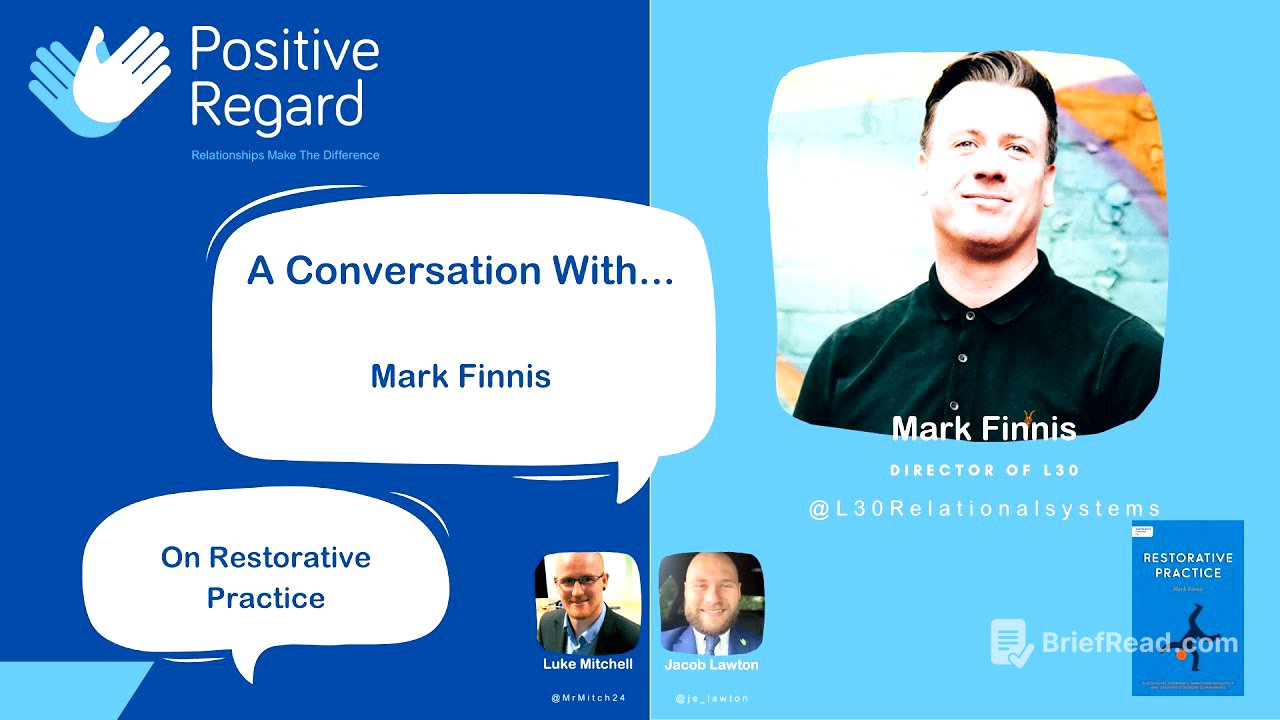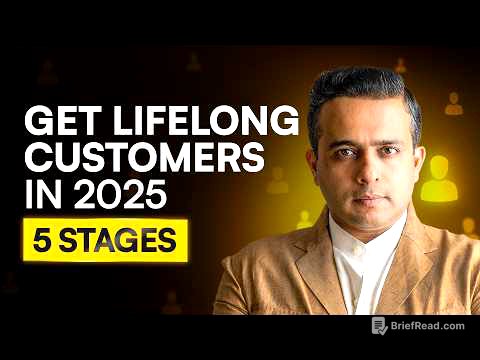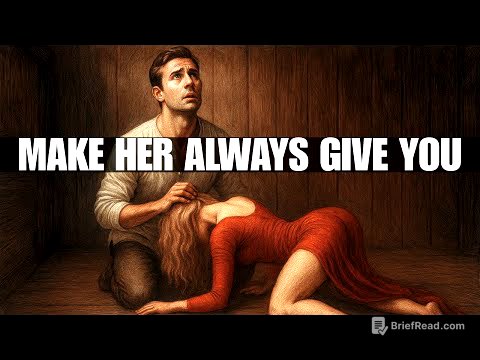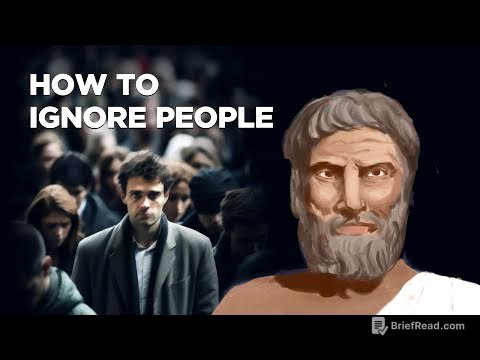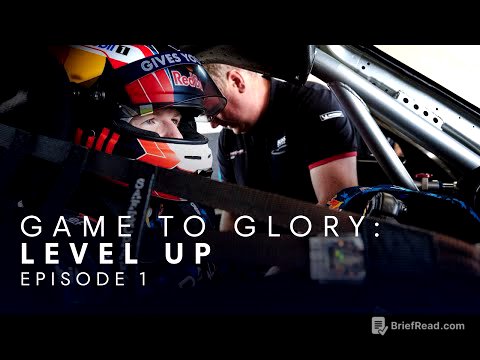TLDR;
This YouTube video features a conversation with Mark Finnis, a restorative and relational practice expert. The discussion covers Mark's journey from being a chef to his extensive work in schools and social care, highlighting the importance of relationships in systemic change. Key points include the shift from reactive restorative justice to proactive restorative practice, the significance of building and maintaining relationships, and the need for systems to value relationships over punitive measures. The conversation also explores the social discipline window as a framework for understanding and promoting relational practices in various settings.
- Importance of relationships in restorative practice.
- Proactive approach to building and maintaining relationships.
- The social discipline window as a framework for relational practices.
Introduction [0:02]
Luke and Jacob introduce Mark Finnis, an expert in restorative and relational practice. They reminisce about first meeting Mark while seeking to integrate restorative culture into schools. Mark expresses his delight at being invited to the conversation.
Mark's Background [1:32]
Mark shares his varied career path, starting as a chef before transitioning to youth work in Liverpool. He became involved in a voluntary project with young lads, which led him to work in schools and develop an interest in the broader system of social care, health, youth justice, and education. This experience sparked his passion for restorative practice and placing relationships at the core of systems.
Transition to Restorative Approach [4:14]
Mark recounts his initial scepticism towards restorative justice when he attended a four-day course in 1998. However, he soon realised the value of involving children, families, and communities in decision-making processes. This approach encouraged responsibility and repairing the impact of behaviour. He noticed the system often waited for problems to arise, leading him to advocate for earlier intervention and a proactive approach, emphasising building and maintaining relationships.
Defining Moments and Influences [9:14]
Mark reflects on his upbringing on a tough council estate in Liverpool and his desire to improve outcomes for children through practical means. He recalls setting up the Sefton Centre for Restorative Practice around 2001-2002, aiming to create a multi-agency partnership using restorative practice to improve outcomes for children. He highlights the importance of adopting behaviours that prioritise building and maintaining relationships.
Personal Experiences and Relational Impact [12:51]
Mark shares a personal story about his father leaving when he was two and being raised by his inspiring mum. This experience led him to seek male role models and develop an interest in masculinity. He realised the importance of connecting with young people on a human level to facilitate change, emphasising that significant learning requires significant relationships.
Authenticity and Systemic Change [15:59]
Mark discusses the importance of authenticity and transparency in building relationships. He shares personal details with students to connect with them. He worries that systems often count the wrong things, such as academic achievement at the expense of navigating conflict and understanding self and others. Punitive systems create resentment rather than reflection, and each encounter should be a teachable moment.
Reframing Language and Emotional Regulation [20:08]
The conversation shifts to the power of reframing language to change perceptions and approaches. Mark emphasises that the language used to describe an experience often becomes the experience. He suggests reframing "challenging behaviour" as "de-stressed behaviour." He also notes that an unregulated adult cannot effectively regulate a child's emotions or language.
L30 Relational System [25:16]
Mark introduces L30 Relational System, named after the postcode in Liverpool where he began his youth work. The team consists of individuals from diverse backgrounds, including NHS, education, and social care. L30 focuses on systemic change and behaviour change, aiming to put relationships at the heart of their work.
Growth and Impact of L30 [27:57]
Mark explains that L30 organically grew as like-minded individuals passionate about restorative and relationship-based practice joined the team. L30 has worked in various settings, including America, Canada, and Europe. Their primary focus is on systemic work with children's services, aiming to make the system more relationship-focused rather than system-led.
Restorative vs Relational Practice [31:01]
Mark distinguishes between restorative justice and restorative practice, defining restorative justice as focusing on conflict and repairing harm, while restorative practice is about building and maintaining healthy relationships. He emphasises that the behaviours are more important than the labels. He describes relationships in three stages: build, maintain, and repair.
Building and Maintaining Relationships [33:50]
Mark uses the analogy of a relationship bank, where deposits are made by knowing children, students, and families well and allowing them to know you. He stresses the importance of connecting before content and building relationships daily. He warns against viewing relationship-based practice as a one-off event. The removal of threats is not the same as creating safety.
The Importance of Effort and Ethos [36:40]
Luke emphasises that relational practice takes effort and resilience and is not a soft, fluffy approach. He and Jacob have used it for years without excluding children, focusing on understanding and translating behaviour. Mark adds that behaviour not translated will only be transferred. Punishment creates resentment, and systems should aim for compliance with ownership.
Culture by Design [40:08]
Mark stresses that relational practice applies to adults as well as children. Teachers won't care for children unless they feel cared for themselves. Culture exists in every organisation, but it should be by design, not by default. He advocates for practice by design, where listening to children's needs and observing nonverbal cues are intentional.
Small Ripples and Marginal Gains [41:37]
Mark encourages doing 100 things one percent better rather than trying to do everything 100 percent better. Small interactions and marginal gains can create significant waves. He references Clive Woodward's approach to winning the Rugby World Cup in 2003.
The Social Discipline Window [43:38]
Mark introduces the social discipline window, developed by Ted Wachtel and Paul McCold, as a framework for understanding different ways of practicing. It has two axes: challenge and support. The four boxes are "to" (high challenge, low support), "for" (high support, low challenge), "not" (low challenge, low support), and "with" (high challenge, high support). Restorative practice sits in the "with" box, which is collaborative and relationship-based.
Applying the Social Discipline Window [50:30]
Mark explains that the social discipline window can be used as a point of reference for any role in a school or organisation. It can be adapted to think through policies, procedures, transformation, and change. He encourages introducing it to students to discuss friendship styles and how they want to operate with each other.
Mark's Book [53:21]
Mark promotes his book, which is full of ideas and narratives around relationship-based practices. It is not a how-to guide or an academic book but aims to be accessible and outline key concepts such as the social discipline window and navigating conflict.
Empathy and Devil's Advocate [55:08]
Jacob shifts the conversation to explore relational practice from different perspectives, including those of families, parents, and children. He also plays devil's advocate, asking Mark to address criticisms and scepticism towards relational practice.
Children as Part of the Crew [57:00]
Mark emphasises that children should be part of the crew, not just passengers in their lane. He highlights Carmana Community School in Leeds as an example of a school that trains students in restorative practice and involves parents and carers in the process. This approach aims to create systemic change and build strong relationships with families.
Addressing Scepticism [59:35]
Mark addresses scepticism towards relational practice by emphasising the importance of dialogue and seeking to understand different perspectives. He quotes Stephen Covey, stating that most people listen with the intent to reply, not to understand. He stresses that everything works somewhere, but nothing works everywhere, and one size fits one.
Modelling Restorative Behaviours [1:02:47]
Mark emphasises the importance of modelling restorative behaviours, even when it's difficult. He believes in seeking to understand rather than seeking to blame and being curious about others' perspectives. He stresses that if a staff member is resistant, it's important to understand the reasons behind their resistance.
Final Thank You and Contact Information [1:03:34]
Luke and Jacob express their gratitude to Mark for sharing his insights and shaping their work. They highlight his relatability and passion. Mark thanks them for their work and the two-way street of their relationship. He shares his Twitter handle for those who want to connect with him.
